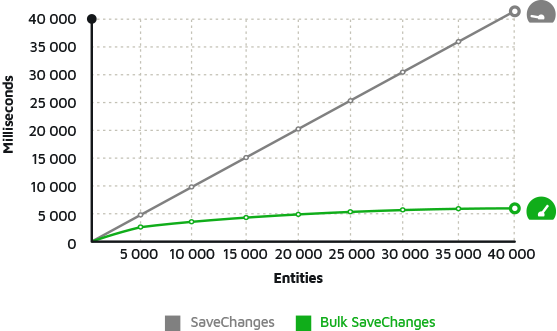Entity Framework Update Records Discover How to Improve Performance
How to Bulk Update?
Updating entities using a custom key from file importation is a typical scenario. Despite the ChangeTracker being outstanding to track what's modified, it lacks in terms of scalability and flexibility.
SaveChanges requires one database round-trip for every entity to update. So if you need to update 10000 entities, then 10000 database round-trips will be performed which is INSANELY slow.
StackOverflow Related Questions
Answer
Entity Framework Extensions library adds the BulkUpdate extension method to the DbContext. BulkUpdate offers great customization and requires the minimum database round-trips as compared to SaveChanges.
// Easy to use context.BulkUpdate(list); // Easy to customize context.BulkUpdate(customers, options => options.ColumnPrimaryKeyExpression = customer => customer.Code);
All rows that match the entity key are considered as existing and are UPDATED in the database.
Performance Comparisons
| Operations | 1,000 Entities | 2,000 Entities | 5,000 Entities |
|---|---|---|---|
| SaveChanges | 1,000 ms | 2,000 ms | 5,000 ms |
| BulkUpdate | 50 ms | 55 ms | 65 ms |
ZZZ Projects
